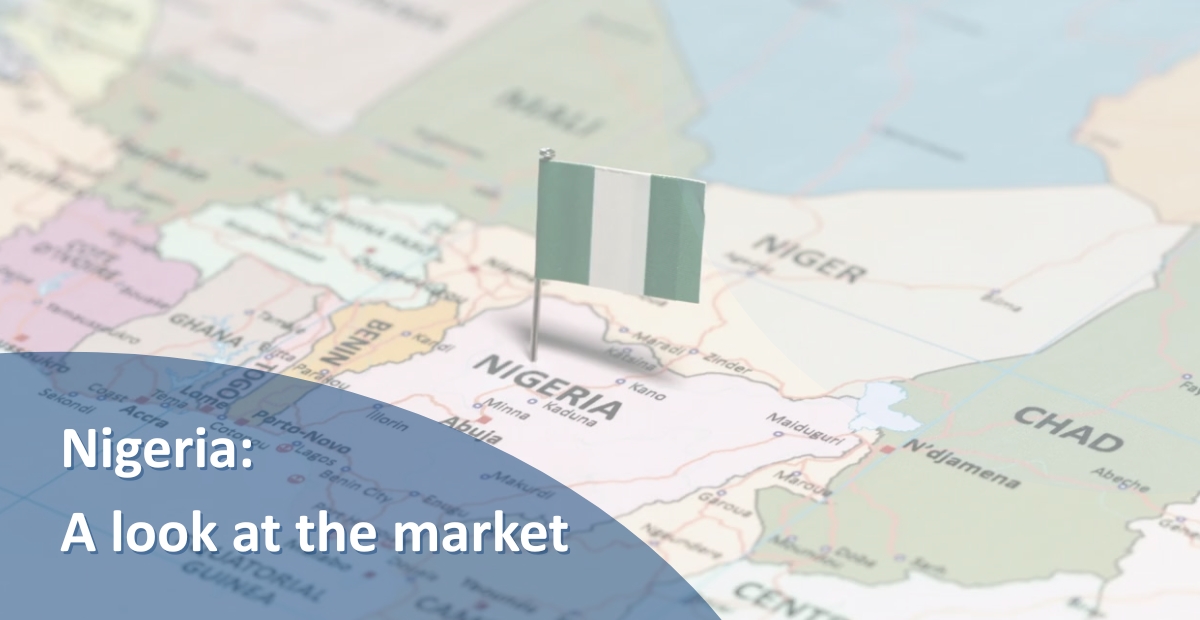OVERVIEW
Nigeria is a country located on the western coast of Africa, known for its cultural diversity with a dynamic mix of ethnic groups and languages, vibrant music, film industries like Afrobeat and Nollywood, and its vast natural resources, particularly oil and gas.
Its capital, Abuja, was purposely built in 1991 to substitute Lagos as the main city, it’s strategically located in the center of the country and it serves as the nation’s political and administrative hub.
In 2023, Nigeria ranked
- 41st in terms of GDP, currently valued as $364B, out of 195 economies in the world;
- 52nd in terms of total exports out of 226 countries;
- 164th in terms of GDP per capita, valued with current US$, out of 196 economies in the world.
ECONOMIC COMPLEXITY RANKING

EXPORT
In 2023 it was estimated that the principal products that were exported from Nigeria were
- Crude Petroleum - $43.5B;
- Petroleum Gas - $8.38B;
- Gold - $1.54B;
- Nitrogenous Fertilizers - $1.05B;
- Cocoa Beans - $763M.
On the other hand, the commonest destinations for Nigeria exports were
- United States - $6.29B;
- Spain - $5.76B;
- France - $4.76B;
- Netherlands - $4.35B;
- India - $3.64B.

IMPORT
In 2023 the most imported products from other countries to Nigeria were
- Refined Petroleum - $18.2B;
- Tanks and Armored vehicles - $9.17B;
- Wheat - $2.97B;
- Cars - $1.56B;
- Raw Sugar - $747M.
These goods were mainly produced by
- China - $18B;
- Singapore - $9.35B;
- Belgium - $5.34B;
- India - $4.06B;
- United States - $3B.
Lastly, it was reported that Nigeria was the world’s largest importer of Tanks and Armored vehicles, with an amount of $9.17B.

YEARLY TRADE
During the last five reported years, the exports of Nigeria have increased by an amount of $2.04B from $61B in 2018 to $63.1B in 2023.
The most recent exports are led by
- Crude Petroleum - $45.6B;
- Petroleum Gas - $8.26B;
- Gold - $1.54B;
- Nitrogenous Fertilizers - $1.07B;
- Cocoa Beans - $753M.
They were exported primarily to
- United States - $6.14B;
- Spain - $5.89B;
- Netherlands - $5.26B;
- France - $4.74B;
- India - $3.88B.
CONCLUSIONS
In 2023 Nigeria faced economic challenges while still remaining a key player in Africa’s development, with reforms aimed at stabilizing the currency and reducing subsides that marked a shift towards a long-term resilience.
Despite inflation and rising costs, sectors like tech and creative industries continued to grow, and its large population with a strong entrepreneurial spirit kept the market active and full of potential.
Source: https://oec.world/en

